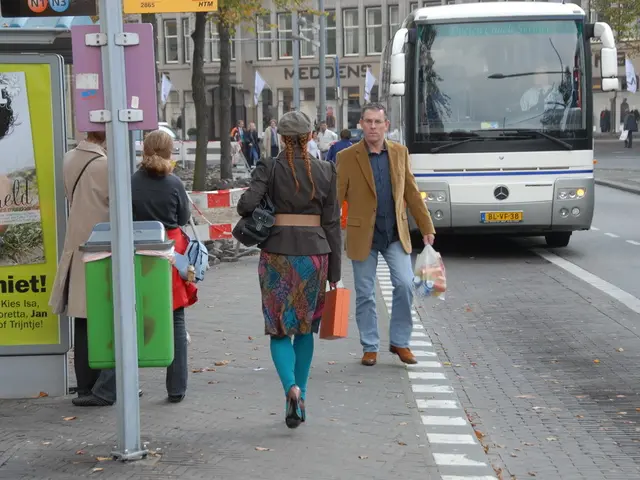Abortion Law Review in Poland: Proposed Amendments Spark Intense Disagreements in the Parliamentary Discourse
Abortion debate spotlighted in Poland's Parliament 🔍
Poland's restrictive abortion laws are back under the spotlight as the Sejm, the lower house of Parliament, delves into various proposals that could either tighten or relax the existing legislation. This politically charged issue has resurfaced, reflecting the societal and political rifts surrounding reproductive rights in Poland.
In 2020, Poland's constitutional court, heavily influenced by the conservative Law and Justice Party (PiS), implemented a near-complete ban on abortion, allowing it only in cases of rape, incest, or a direct threat to the mother's health. This tightening of already stringent abortion laws led to widespread public unrest, with many Poles expressing their indignation at what they perceived as an encroachment on women's rights and autonomy.
The hot seat 🔥
The current political debate in Parliament echoes the opposition parties' electoral promises to revisit and potentially loosen these restrictions. One key bill from the Left party suggests decriminalizing abortion up to the 12th week of pregnancy and revoking penalties for those assisting in the procedure. Meanwhile, the Civic Coalition proposes state participation in securing reproductive rights and permits terminations under broader circumstances, such as severe fetal abnormalities. However, these liberalizing efforts face resistance from the conservative factions within the Parliament, preparing the ground for a heated political showdown.
Coalition Chaos chaos-in-coalition 🗨️
The ruling coalition finds itself divided on the best approach to abortion laws. While the Civic Coalition (KO) and the Left (Lewica) generally support the liberalization of abortion laws, advocating for legislation permitting abortions up to the 12th week of pregnancy, the Third Way (Trzecia Droga) party advocates for a more cautious position. The party suggests holding a national referendum to decide the matter, potentially bypassing the parliamentary route preferred by its coalition partners. This divide within the coalition highlights significant tensions, as the Third Way seeks to transfer the decision-making power directly to the Polish people.
Each proposal, representing varied perspectives on the circumstances under which abortions should be allowed, has progressed to the next stage of parliamentary proceedings. Selected committees will now scrutinize and debate these bills, signifying a crucial phase in the legislative process. This advancement demonstrates the coalition's commitment to addressing this complex issue through the legislative process, ensuring all coalition perspectives are taken into account before any changes to the law are made.
The nation's pulse 💉
Poland remains divided on the abortion issue, with the outcome of these discussions determining the future of reproductive rights in the country and shaping the direction of social policies under the current administration. Given the international attention and deep societal implications, the decisions made in the coming weeks could reshape Polish society for years to come.
Want to stay updated on Poland's latest news? Sign up now to receive a weekly recap of happenings in Poland every Saturday! 📩 🇵🇱 Sign Up Here! 🌟 ✉️
- The AI-powered analysis of general news shows a heated debate in Poland's Parliament over the country's abortion laws.
- Rampant arguments in the Sejm revolve around proposals to tighten or relax the existing abortion legislation, highlighting deep societal and political rifts.
- The liberal parties have made legislative promises to reconsider the current restrictions on abortion, including the Left party's bill for decriminalizing abortions up to the 12th week of pregnancy.
- The science community and health-and-wellness advocates voice their concerns about the potential impacts on women's health, especially regarding pregnancy terminations and reproductive rights.
- The ruling Law and Justice Party (PiS), with influence over Poland's constitutional court, continues to defend the restrictive abortion laws, allowing terminations only in cases of rape, incest, or a direct threat to the mother's health.
- Womens-health policy-and-legislation committees are required to scrutinize various proposals and debate their implications for future social policies, signifying a critical juncture in the legislative process.
- The political landscape in Poland becomes increasingly complex, with divisions within the ruling coalition, particularly between the Civic Coalition, the Left, and the Third Way party, over the approach to abortion laws.
- The Third Way suggests a national referendum to decide on abortion laws, seeking to bypass parliamentary proceedings and potentially shift the focus from Polish politics to public opinion.
- The results of the upcoming debates and decisions on the abortion issue are poised to shape Poland's social policies under the current administration, causing widespread interest and concern among citizens and international observers.










